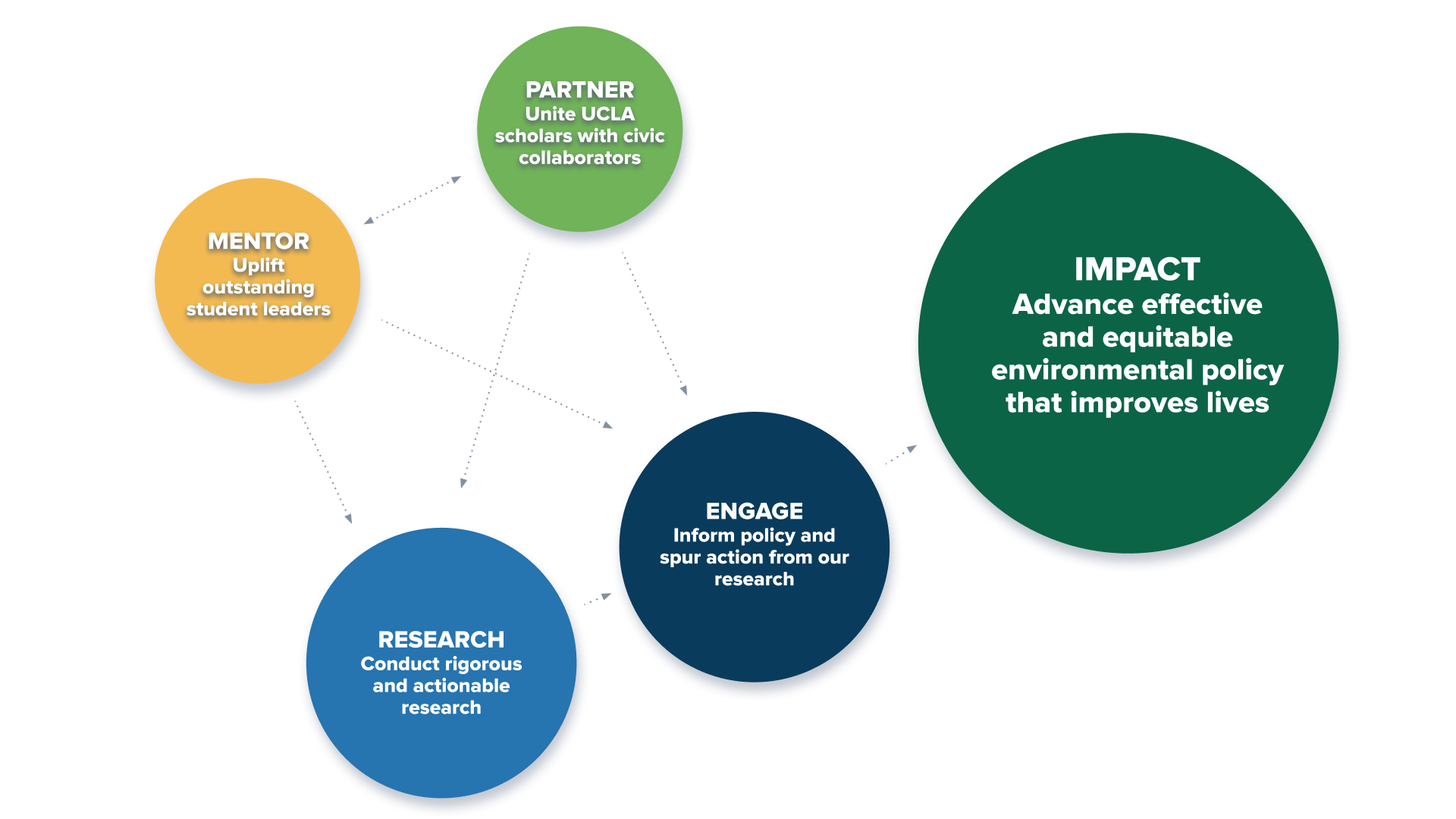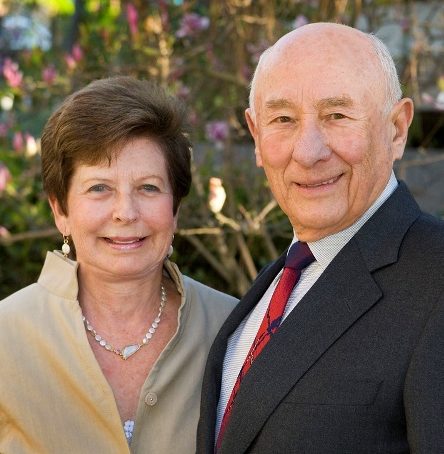Mission
Our mission is to advance effective and equitable solutions to pressing environmental challenges through actionable research that engages UCLA scholars, policymakers, and communities.
Approach

Learn more about how we collaboratively solve environmental challenges:
RESEARCH
Our high-quality, unbiased research tackles critical environmental and societal challenges – from rising temperatures to ensuring clean air and the human right to water for all. Our work often focuses on California, one of the world’s largest economies, to support models of environmental leadership relevant nationally and globally.
MENTOR
Student training and support are essential to how we bridge research with practice and guide the next generation of leaders. We cultivate environmental champions by supporting approximately 50 exceptional students each year to participate in our impactful research. We also provide fellowships and mentorship opportunities that connect students to civic partners such as environmental justice organizations.
PARTNER
Extreme inequality and environmental crises are intertwined. The Luskin Center for Innovation takes a fundamentally collaborative and de-siloed approach to evaluate and advance solutions across different policymaking sectors and scales. We work with a diverse range of civic partners to ensure that environmental policy innovations are equitable and evidence-based.
ENGAGE
Working with our civic partners, the Luskin Center for Innovation brings evidence-based recommendations to policymakers. We have influenced dozens of public policies and elevated numerous community actions that advance environmental equity. Our work has earned recognition by President Obama’s Climate Data Initiative, three national awards from the American Planning Association, and five state awards.
IMPACT
The dozens of policies we have shaped not only address environmental problems, but improves lives. Our model of rigorous, actionable, and engaged research is needed now more than ever to combat the climate crisis and other challenges at the intersection of the environment and inequality.
Unite UCLA scholars with civic partners
Our faculty, staff, and students collaborate with a diversity of civic partners to shape environmental policy. Leveraging the expertise of the nation’s top public university, we help ensure that environmental policy innovations are evidence-based.
 Uplift student leaders
Uplift student leaders
We cultivate environmental champions by supporting students in research positions, fellowships and mentorship opportunities. Each year, we involve more than fifty students in our work.
 Conduct rigorous research
Conduct rigorous research
Our high-quality, unbiased research tackles critical environmental and societal challenges – from rising temperatures to ensuring clean air and the human right to water for all. Our work often focuses on California, one of the world’s largest economies, to support models of environmental leadership relevant nationally and globally.
 Inform policy and elevate community-driven solutions
Inform policy and elevate community-driven solutions
We identify problems, inform solutions, and uplift best practices that should be scaled for transformative benefits. Specifically, we design equitable and effective environmental policies, guide public investments, and elevate community-driven climate solutions.
![]() Improve everyday lives
Improve everyday lives
We strive to remedy disparities with a focus on historically underserved and overburdened low-income communities and communities of color. Our goal is for everyone to have clean, affordable, and resilient places to live, work, learn, and play.
Values
- Inquiry: We are committed to pursuing high-quality, unbiased, original research.
- Innovation: We creatively address challenging environmental problems by collaborating with communities and civic partners to model new solutions.
- Action: We are passionate about informing effective policies and supporting community-driven actions that advance environmental equity.
- Collaboration: We value learning from and working with a diverse set of partners – including community leaders, advocates, policymakers, and other scholars – to advance a more just, sustainable, and resilient future.
- Justice: We believe that everyone has the right to a safe and healthy environment.

Renee and Meyer Luskin founded the Luskin Center for Innovation in 2008, and it became part of the Luskin School of Public Affairs in 2009.
“A sustainable, healthy environment is the greatest inheritance one can leave to children, and the most enduring gift to the community and nation.”
– Meyer Luskin


